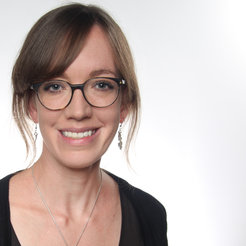Caroline Schuppli wins Freigeist Fellowship
The award funds young scientists taking on high-risk projects

Caroline Schuppli wants to know what sparked human curiosity during our evolution from great apes. Her own curiosity might be a bit closer to being satisfied, as the Max Planck group leader has just won a prestigious fellowship from the Volkswagen Foundation to fund her research into tracing the phylogeny of human curiosity.
Schuppli is one of only nine scientists selected from a pool of 100 applicants this year by the foundation, which awards its Freigeist Fellowships to young scientists embarking on high-risk projects. The award, announced today, is awarded each year to up to 15 courageous young researchers from all disciplines who are in the first four years after their doctorate. Providing recipients with up to 2.2 million euros for up to eight years, the award aims to offer creative minds maximum freedom and a clear time perspective for their research.
Upon receiving the fellowship, Schuppli said: "I am extremely honored to receive a Volkswagen Foundation Freigeist Fellowship. I am especially excited because the fellowship will allow me to conduct research projects which deviate from mainstream and will as such shed light on novel aspects of my research. This is a unique opportunity which I am looking forward to taking on."
Schuppli is an evolutionary biologist who became a research group leader at the Max-Planck Institute for Animal Behavior in November 2020. She is the director of the SUAQ orangutan research project and, for the last decade, she has studied a population of wild orangutans in Sumatra. Her research focuses on understanding cognitive evolution and development.
With funding from the Freigeist Fellowship, Schuppli seeks to uncover the evolutionary roots of innovativeness by tracing the phylogeny of human curiosity. Her research group plans to investigate the interplay of curiosity, cognition, and skill repertoires in humans and great apes across different settings. The planned projects will explore which immediate factors suppress and trigger curiosity, and which foster its development.
To become a Freigeist Fellow, young researchers must not only have outstanding technical expertise, but also be able to look beyond the boundaries of their own discipline and combine critical analytical skills with new perspectives and approaches.
With a final round of funding in 2021, the Volkswagen Foundation will end the program for the promotion of young researchers, that began in 2014, in order to launch new funding ideas following the realignment of its funding strategy. The next and final deadline for project submissions is April 01, 2021.
For more information on the Volkswagen Foundation's Freigeist Fellowships, please visit their fellowship website.
To see the other 2021 Freigeist Fellowship winners, visit the foundation website.











